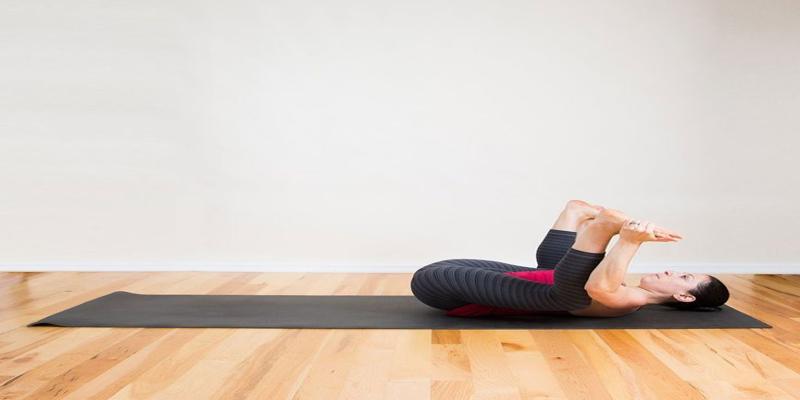Advertisement
Have you ever reached that point when life seemed to balance in the basket of stress, and finding calm within the chaos became an absolute necessity? Being a former meditator, you may know various techniques to induce relaxation. However, with the development of the relaxation response by Dr. Herbert Benson, there comes a simple yet powerful package for dealing with stress. The focal point of the subsequent article is how this scientifically supported technique will help an individual get back in the driving seat concerning their mental and physical life. Come aboard as we delve into how the dynamics of the relaxation response come into play in making changes in daily life.
 Understanding the Change
Understanding the ChangeFirst, it is important to understand the key differences and similarities between traditional meditation and the relaxation response when working one's way from traditional meditation to the relaxation response. While both practices will decrease stress and increase well-being, the relaxation response offers a unique approach that may appeal to those who find traditional meditation inaccessible.
The relaxation response, discovered by Dr. Herbert Benson, is scientifically based. It differs from other forms of meditation steeped in spiritual or cultural tradition in that it is a physiological state that can be induced through specific, secular techniques. This may appeal to people looking for an evidence-based approach to reducing stress.
Another significant benefit of the relaxation response is that it is easy to fit into a daily schedule because it doesn't take too much time. You can exercise the relaxation response on your way to work, in the office, or at home, wherever you are, and you can do it in 10-20 minutes. Such flexibility in exercising makes it very attractive to busy people who find no time for longer meditation sessions.
As you unwind, some concrete advantages will emerge. Researchers have recorded that regular practice reduces blood pressure, increases heart rate variability, and reduces stress hormones. The quantifiable advantages tease the motive to release your stress; hence, continued routine running may be easier than usual meditation.
 The relaxation response refers to the deep physiological state opposite to the body's stress reaction. As such, science has identified it as a means of relieving tension and enhancing one's state. A clear comprehension of the dynamics that come into play with the response will aid in using it to your advantage in reducing the level of stress.
The relaxation response refers to the deep physiological state opposite to the body's stress reaction. As such, science has identified it as a means of relieving tension and enhancing one's state. A clear comprehension of the dynamics that come into play with the response will aid in using it to your advantage in reducing the level of stress.
Incredibly, while relaxing, the magic works inside: your heart rate slows, your blood pressure drops and your breathing becomes regular. This process is mediated through the parasympathetic nervous system, which is called the "rest and digest" system. It directly balances with the sympathetic "fight or flight" response during stress.
It works on the brain's chemistry to heighten neurotransmitters related to mood and feelings of well-being, like serotonin and dopamine while lowering cortisol and adrenaline levels, two hormones associated with stress. Long-term benefits for both body and mind then become apparent.
The relaxation response is an effective medicine against stress in maintaining overall well-being. This is done by retiring to a quiet, comfortable place where one is not likely to be disturbed, then sitting relaxed, closing one's eyes, and directing your attention to your breath: "Do this by silently saying a word, phrase, or sound that works for you as you inhale and exhale. This repetition can help break the cycle of everyday thoughts and create calmness within."
To invoke this relaxation response, one has to create an attitude of mindfulness. If distracting thoughts come, they casually recognize them without judgment and return your focus to your chosen word or phrase. This could be the practice of non-judgmental awareness, vital in deepening your relaxation and taking advantage of all its benefits.
For best effect, practice the relaxation response for 10 to 20 minutes each day. Most find that their technique works best when they set aside a specific time of day, such as early morning or lunchtime. Even small snippets of daily practice yield profound improvements in stress levels and overall well-being. Just like everything else, with practice, eliciting the relaxation response takes longer and is more effortful at the beginning, whereas with time, it becomes much more manageable and effective.
Meditation and relaxation responses are similar in that they create quiet time and reduce stress. These practices include focused attention and often controlled breathing, resulting in reduced heart rate, lowered blood pressure, and relaxed tensed muscles. Each of these practices has been independently shown to activate the parasympathetic nervous system, also called the "rest and digest" system, opposite the sympathetic nervous system responsible for the "fight or flight" response in chronic stress.
While sharing goals with meditation, there are some beautiful differences in their meditation techniques and the relaxation response. Classically, meditation often involves mindfulness, awareness, and even spirituality. This sometimes includes multi-step techniques that take much time to learn. By most measures, the relaxation response is designed to be more accessible and secular. It is usually a simple, mechanical process that can quickly be learned and applied in many settings.
The focus and intention of the practices also vary. In meditation, the focus is generally wider, and large-scale insights and personal change are familiar. This technique, developed by Dr. Herbert Benson, has a narrower focus. The main intention is to elicit a specific physiological state that counteracts the stress response; thus, it is particularly useful for managing stress and its related health problems.
Remember, consistency matters as one digs into the technique behind eliciting the relaxation response 10 to 20 minutes daily to decrease stress and improve well-being significantly. Though challenging, its physical and mental health benefits may be gigantic. The good news is that the relaxation response puts you in a good position, whether you are a seasoned meditator or just starting to cultivate mindfulness in the fast-moving world with its host of chronic stressors. Stop, breathe in, and tap your body's natural relaxation response. Your mind and body will thank you.
Advertisement

By Kristina Cappetta/Nov 07, 2024

By Maurice Oliver/Jan 13, 2025

By Elena Davis/Jan 03, 2025

By Martina Wlison/Mar 18, 2025

By Sid Leonard/Dec 05, 2024

By Susan Kelly/Dec 05, 2024

By Mason Garvey/Mar 16, 2025

By Juliana Daniel/Mar 16, 2025

By Martina Wlison/Nov 10, 2024

By Martina Wlison/Jan 06, 2025

By Aldrich Acheson/Dec 05, 2024

By Elena Davis/Dec 13, 2024